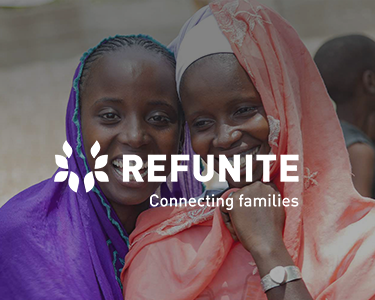
Healthcare discrimination has prevented some Somali refugees from seeking treatment in public hospitals (file photo) Photo: Adel Yahya/IRIN
ADEN, 13 April 2010 (IRIN) – Volunteers at some hospitals in Aden, southern Yemen, have started a new initiative to help African refugees, mainly Somalis, access health care.
Omar Abdu, a Somali refugee living in Aden’s Basateen area, is one of those who received help from the Health for All Association (HAA) NGO. He has successfully undergone an operation in the government-run Ibn Khaldoon Hospital to remove multiple stones in his bladder.
“You need a lot of money to receive [this] treatment in a private hospital…, a minimum of YR 60,000 [US$270], in addition to thousands of riyals for drugs, which is impossible for me to afford,” Abdu said.
HAA was set up in February 2010 with the aim of helping African refugees in Aden and Lahj governorates access health care, and has over 200 volunteer medical staff from three public hospitals in Aden – Ibn Khaldoon, Al-Jumhouri, and 22 May.
According to Amin Qasim, one of the HAA volunteers, more than 200 vulnerable cases with serious health problems had been identified as the most eligible for prompt hospitalization after a screening process in the Basateen area in recent weeks.
“We are waiting for the camp management to bring them for necessary medical interventions,” he said.
Tim Morris, a researcher on displacement and refugee issues, said in an article in the February 2010 issue of the Forced Migration Review that as Yemen’s public health-care system collapses, it has become harder for even Yemenis to be seen by health professionals.
“Government health-care institutions no longer provide free medication to Yemenis, and Somalis report being ignored when they report to government hospitals,” Morris said.
However, refugees should receive the same access to health care at public hospitals where they operate, Khaldoon Abdulbari Qasim, head of HAA, told IRIN.
The UN Refugee Agency (UNHCR) welcomes the HAA initiative to extend their programme to refugees as a good example of solidarity and responsibility sharing, Rocco Nuri, a UNHCR external relations officer based in Aden, told IRIN.
“The project can potentially reach a population of some 34,000 refugees [17,000 in Kharaz Camp and 17,000 in Basateen],” he said.
According to a 9 April statement by UNHCR, Yemen now hosts more than 170,000 Somali refugees.
Stigma, discrimination
Many African refugees, including Somalis, also face stigma, according to officials.
“African refugees are feared for allegedly being a source of sexually transmitted diseases [STD], which is why medical staff refuse to admit them to hospitals for treatment,” Qasim said.
Hussein Faqeera, coordinator of the National AIDS Control Programme, told IRIN that, following police reports of Africans being engaged in “illicit sex”, many ordinary people feared all Africans had STD “and therefore practised discrimination against them”.
“Too many [refugees] are ailing in their shelters, but dare not come to any of the three public hospitals as they feel they are discriminated against by whoever they meet there,” HAA’s Khaldoon said.
Yahya, a Somali refugee, said he could not understand “why many Yemeni citizens blame us for HIV in society. This made us stop going to public hospitals to seek treatment.”
“Health-care discrimination against refugees doesn’t only exist in Yemeni society. It is a worldwide phenomenon. It is difficult for one to fight such social stigma,” Fuad al-Sabri, HIV/AIDS project management officer for the UN Development Programme (UNDP) in Yemen, told IRIN.


